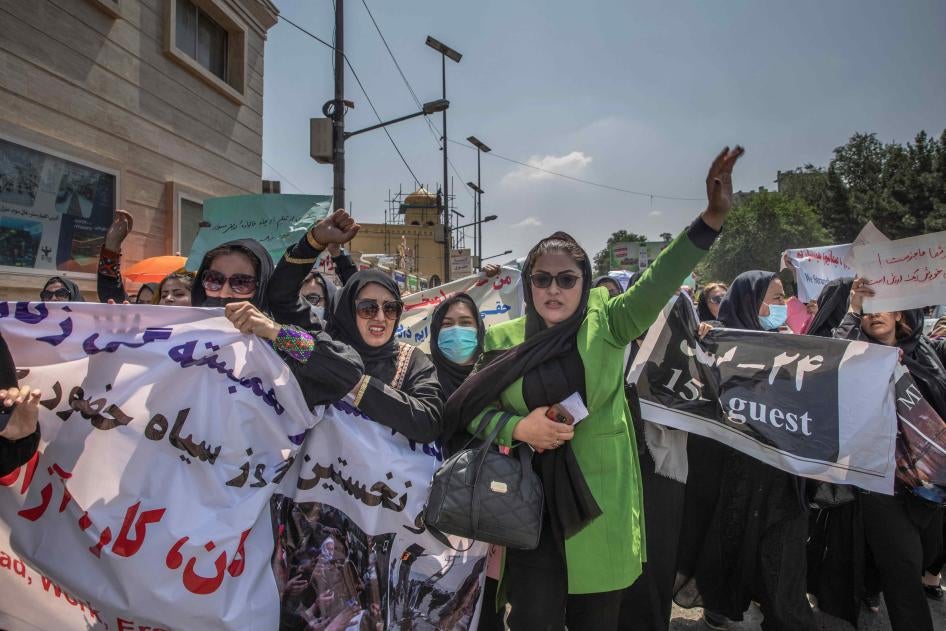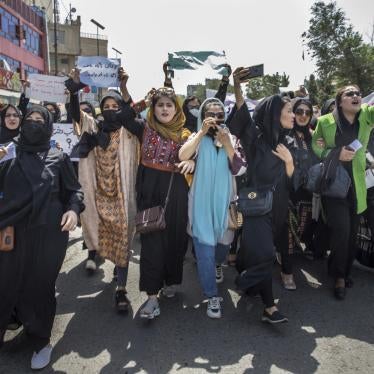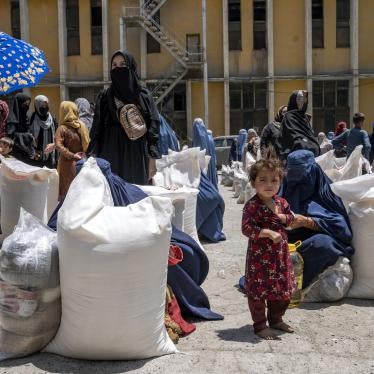It's hard to believe that two years have already gone by since the Taliban took over Afghanistan.
Time is not linear; for women and girls in Afghanistan, it has been two long years of constant loss, and two full years of fighting back using the few resources left to combat the Taliban's ruthless misogyny. For women, this includes taking their bodies to the streets to resist and using their voices to chant. In the face of brutal Taliban reprisals, they have adopted new forms of resistance, such as leading movements and protests from inside their homes to raise international awareness. Two years have passed since activists first began chanting, "Bread, Work, Freedom," a message that carries the seemingly simple yet sophisticated message that has come to define their movement.
There are multiple ways to read the past two years. While the Taliban's ongoing and intensifying oppression cannot be forgotten for a moment, one narrative that stands out is the defiance against the Taliban's efforts to confine Afghan women and girls to their homes. The Taliban seek to literally erase women from public life and make the oppression of women a personal matter, off limits to any intervention from the rest of the world. However, the women who continue to protest teach us that the personal is indeed political, and that the Taliban's oppression of women will not be tolerated as a private matter.
In what may be the embodiment of the Taliban's greatest fear, Afghan women's resistance under their rule has become more political than ever before. Every woman under the Taliban who resists, whether by peacefully demonstrating on the streets, wearing unofficially banned colorful dresses, negotiating fearlessly with Taliban officials over rules challenging the size of their hijabs, taking advantage of their freedom in the virtual world, or living a life that defies the Taliban's suppressed version, has become inherently political.
The Taliban themselves have driven this transformation, which has now become irreversible. Once again, an oppressor has failed to realize the courage they ignite and the strength they unleash when they strip away people's freedom.
In the past two years, much has been said about women's protests, but less attention has been paid to the protesters.
Afghan women have been categorized as either saved by the West after the U.S.-led invasion of Afghanistan in 2001, or victimized by the Taliban since 2021. The women protesting the Taliban have crucially taught that there exists a significant space of resistance between that binary conception—in the everyday, in the ordinary—that is far from passive. The Taliban's deprivation of their rights has required these women to risk their lives just to meet their daily struggles.
When established women's rights activists were forced to flee after the Taliban takeover, other women, often younger and from less privileged backgrounds, rose spontaneously and gave shape to a new grassroots resistance movement now widely known as the "Bread, Work, Freedom" movement. With time, these women, joined by others, formed an organized civic resistance. Among them were teachers, poets, writers, mothers, and former government employees.
"Bread, Work, Freedom" became one of the most frequently used and popular slogans during the grassroots protests led by women. The demands were remarkably simple yet crucial. Women were defending what they knew the Taliban would attack: their independence, agency, mobility, and freedom. These women were asserting their rights to social and financial independence. They were also demanding dignity and risking their lives for a better future for all Afghan people.
Two years under Taliban rule have resulted in devastating setbacks and violations of women's rights in Afghanistan. With over 40 decrees, some written, others just announced, aimed at crushing women's freedom, the Taliban have drastically diminished women's roles within society. They began by violating women's basic rights, including their social and political presence, and escalated to intruding on women's personal and private spaces. One of their recent decrees bans women from going to beauty salons, which are among the few businesses owned and operated by women and offered a rare opportunity for community and "self-care."
What the Taliban fail to grasp is that courage inspires more courage, bravery multiplies, and tyranny leads to greater demands for the rights denied. A lesson learned from Afghan women's ongoing resistance is that movements pave the way for other movements, even small pockets of resistance will generate more, and that individual and collective courage inspires hope. Women in Afghanistan are not lacking visions for an alternative future; their hope is fueled by grassroots activism.
The resistance movement is young, and diverse, and although it is scattered, it is brave and optimistic and growing in strength. Women will lead the peaceful resistance in Afghanistan. As one young woman passionately exclaimed in a video just days after the Taliban takeover, "We are not afraid of death; we are an immortal generation. We [will] make freedom flourish." Her words then, ring true today.










